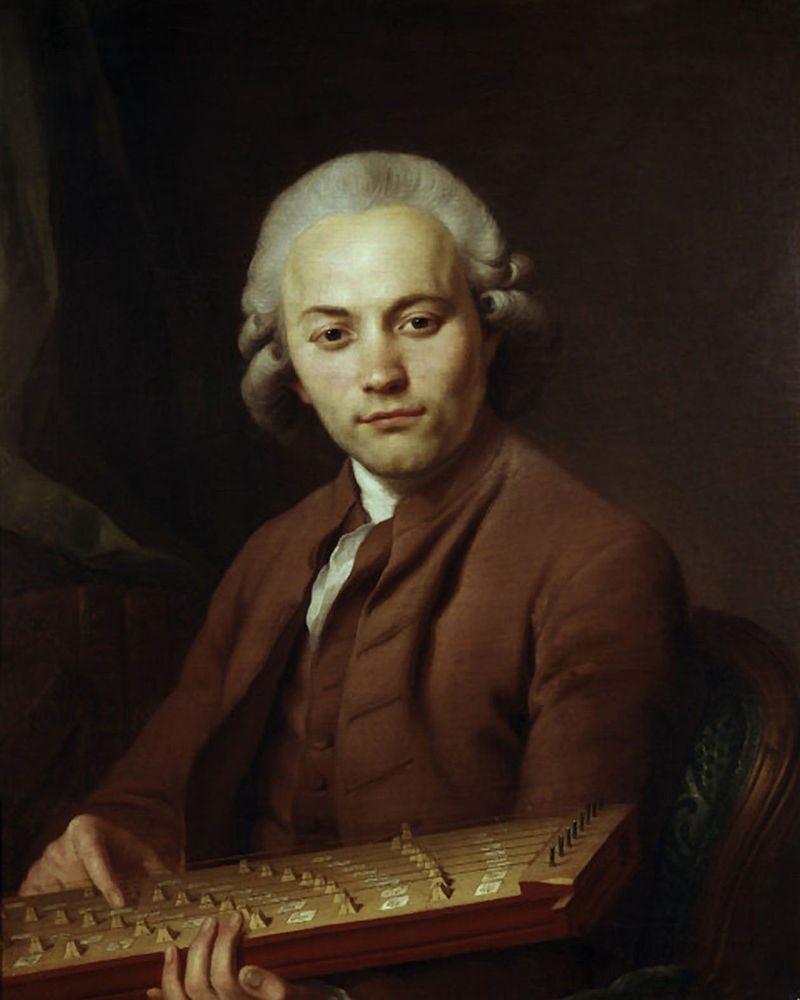Born in Pleichach in the state of Würzburg George Joseph, more commonly referred to as the Abbé Vogler divided opinion during his life but nevertheless still left some fine music behind him.
Mozart thought him a charlatan. This may have been a matter of jealousy. Vogler certainly did not have to struggle to earn his keep as a musician. The sun of the Prince Bishop of Würzburg his musical education encompassed stints at the Court of the Elector Palatine, followed by time in Bologna, Padua, Venice and Rome.
His talent at composing grew with each move and his reputation with it, such that by the time he arrived in Rome he was admitted to the Academy of Arcadia and made a Knight of the Golden Spur. Appointments to the Papal Court followed.
In short the sort of appointments that Mozart could never have dreamed off, simply fell into Vogler’s lap.
Returning to the court of the Elector of Palatine in Mannheim and later in Munich. Eventually he found his way to Paris where his organ concerts became a must see spectacle. He was invited to perform for the court at Versailles.
Away from composing, Vogler developed a new way of building organ’s and invented a new system for fingering on the harpsichord. Mozart described this as “miserable”!
As if his travelling and court appointments were not enough, in 1786 he accepted yet another as Kapellmeister to Gustav III of Sweden and founded a music school in Stockholm. A visit to London in 1790 again excited much attention, especially for his organ concerts, with his own build of organ.
Unfortunately his Royal patron was assassinated in 1792. Vogler decided to leave the Swedish Court and …go travelling! Perhaps the first to do so he travelled the world in search of folk music, traditional and uncorrupted music. Travels which took him to Greenland, Armenia as well as the further reaches of Asia and Africa.
Finally in 1807 he accepted yet another royal invitation, this time to be Kapellmeister to Ludwig I Grand Duke of Hesse-Damstadt. At Damstadt he opened yet another music school whose pupils included Weber and Mayerbeer.
He was, needless to say, very prolific. Or as Mozart would have it: “barren and frivolous - a man who imagines he can do a great deal, and does very little”.
You can’t win ‘em all.
Here is an example of a symphony which to my ears is certainly up with the best being written at that time. Judge for yourself….





This caused my little Bluetooth speaker to jiggle all over the kitchen table!
Interesting sounding chap, and BTW Gustav 3rd was assassinated at the opera, which is worth keeping in mind!
Uplifting start to my music listening day. For such an enlivening piece, it’s a shame it isn’t more well known.